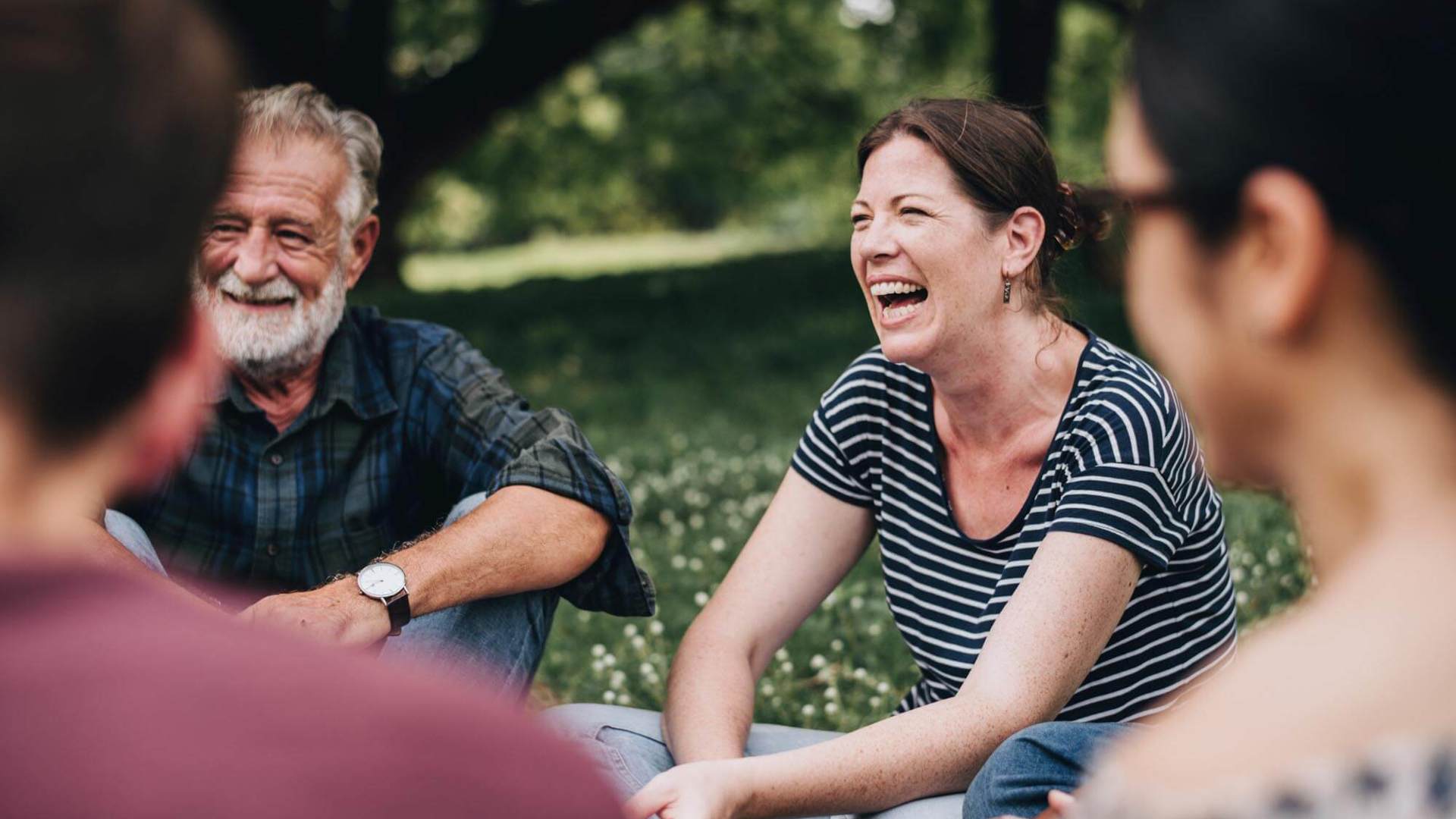
How to make friends at any age
Why is it harder to make friends as we get older?
Making friends often gets harder as we get older, as it feels like something we're only expected to do when we're young. UKCP psychotherapists Henry Adeane and Alivia Rose share their advice for making friends at any age.
Written by Henry Adeane

As we grow older, making friends can be hard, because we become entrenched in ways of doing things, in our cycles of friendships, and in our work commitments, and perhaps we become more rigid in our behaviours and choices. We yearn for friends and regret that we have fewer than we want or need. Yet we become less inclined to make the effort to hold on to the f
ew that we have or to make the effort to attach to new friendship possibilities.
This is because conflicts are at play. On one hand, part of us yearns for friendship. Another part of us can feel that we are above making the effort or afraid to take the first step. Perhaps we regret not following up on friendship possibilities, and then enviously attack those who seem to have wider friendship circles. We may fool ourselves that we are above friendship, we do not need friends, we are self-sufficient. If this is the case, it signals to others that we’d rather be left alone.
As humans, we naturally gravitate towards socialising and fitting in and being part of a group. There is an evolutionary drive which is hard-wired into us to seek companionship and collaboration as an important strategy for survival. It became apparent for many people in the 2020-2021 lockdowns just how important connection and companionship are for so many of us. As we get older, more people value this companionability, yet socialise less and less. It is perhaps a result of feeling spurned or abandoned, bruised and hurt. Fitting in seems less important; we fool ourselves that we have come this far by ploughing our own furrow, daring to be different, to be outside the herd, or to be above the herd. And there is a risk we don’t reach out to make friends. If there is no one around to tell us frankly, we will become victims of this loneliness trap.
Written by Alivia Rose 
All ages can suffer deeply from loneliness and isolation. Younger people suffer from loneliness, especially with such a focus on the online world and a resulting lack of actual contact. In middle age we may be family-orientated and working, and life is busy – but within that we can feel isolated and lonely as there may be very little time for oneself. As we get older and children leave and partners may leave or pass away, there can be a sense of starting over again. In all stages of life loneliness can exist, and it may feel like taboo to talk about. I do think that times are changing, conversations are happening, and people feel much more able to talk about their loneliness, and feel understood, and so it becomes a normal part of conversation, which makes people feel less isolated.
What’s the answer to making friends at any age?
The first step is noticing your inner resistance, how it might not be all that happy. You are in a comfort zone of old friendships and routines, and changing this feels like a risk and hard work. If you are willing to keep making the effort, the reward of friendship will be yours. Start by finding out what is going on in your area and join clubs of interest. The hardest part about this is having confidence enough to turn up.
As we get older, we can find ourselves losing confidence. To overcome this barrier to making friends it is important to be able to chat to a friend or other people about this because you are not alone. Reach out to an old friend and pick up the phone, or even write a letter to share how you feel. They may also be struggling in their own way, or they may inspire you to feel a bit braver. Confidence is a muscle that needs to be worked on. Remember what it was like when you were younger and how nerve-wracking it was to go and meet someone new – but you did it and you probably made some really good friends along the way.
Withdrawal from social activities and reticence to socialise and meet people can be an indicator that you could benefit from mental health support. It is important to reach out for help. Your GP can help prescribe support, like access to talking therapies or social and community projects. You can also find support through talking to a private therapist who can help you work through the reasons behind your loneliness to restore your confidence so you can step ‘out of your comfort zone’ and try new things and meet new people.
Share
Like most websites, we use cookies. If this is okay with you, please close this message or read more about your options.

